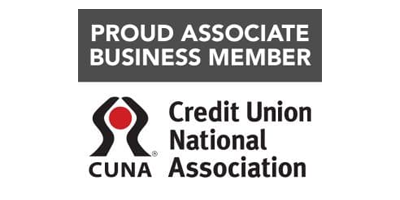Hospitality entrepreneurs in the USA acquire, develop, and reposition commercial real estate properties by securing credit from different commercial real estate lenders, including banks, non-bank institutes, and credit unions. However, they ensure financial stability by using safety and security in financial institutions as key criteria for selecting a lender.
The criteria help them secure funds despite adverse economic conditions. Both banks and credit unions meet the varying needs of hospitality entrepreneurs while ensuring financial safety and security. However, they differ from each other in many aspects. In this blog post, we discuss what makes banks and credit unions different and why credit unions are safer than banks.
How do Banks and Credit Unions differ?
Banks are for-profit financial institutions that act as intermediaries between depositors and borrowers. In addition to accepting deposits, they generate profits for shareholders by offering a slew of credit products and financial services. Commercial and saving banks in America protect depositors against financial losses securing deposit insurance provided by the Federal Deposit Insurance Corporation (FDIC).
Credit unions are nonprofit financial cooperatives established, owned, and managed by their members. Members can be stakeholders in an organization, employees of a company, or residents of a community, etc. Credit unions usually provide conventional banking services to their members. They safeguard members’ money using deposit insurance provided by the National Credit Union Administration (NCUA). There are many benefits of a Credit union for their members, e.g. offering better interest rates and lower service fees.
Are credit unions better and safer than banks? Let’s find out!
Banks vs. Credit Unions (Key Operational Differences)
Goals
As noted earlier, banks operate as for-profit financial institutes, while credit unions operate as non-profit cooperative financial institutes. Banks are owned by shareholders. They focus on generating higher returns to stakeholders. On the other hand, credit unions prioritize superior service delivery to members over profit maximization.
Deposits
Credit unions offer fewer financial products and services than banks. Banks offer a wide range of deposit products, while credit unions offer specialized deposit products. However, credit unions offer a higher rate of interest on savings and CDs in comparison to banks.
Credit
Banks offer a wider range of credit products and solutions than credit unions. They minimize lending risks by setting stricter lending criteria and robust underwriting processes. On the other hand, the member-focuses approval process enables credit unions to provide loans faster than banks. However, they do not offer many complex loan products offered by banks.
Interest Rates
Banks increase profits by setting lower interest rates on deposits and higher interest rates on loans. Despite offering flexible lending solutions, they support differential interest rates. On the other hand, credit unions deliver better returns on deposits and offer loans at affordable interest rates. Hence, depositors and borrowers save money by prioritizing credit unions over banks.
Fees
Most credit unions offer free monthly checking accounts and do not charge monthly maintenance charges. It becomes easier for them to curtail fees as the profits go back to members. Banks, on the other hand, increase profits by charging various fees to customers. Most banks charge ATM fees and overdraft fees while charging monthly maintenance charges.
Customer Service
Banks have a larger and wider customer base than credit unions. Most banks deliver onsite and remote customer service using cutting-edge technologies like artificial intelligence. However, they prioritize profits over customer service experiences. On the other hand, credit unions foster strong relationships with members by providing personalized customer service. Members still lack the option to access 24/7 customer service across communication channels.
How do Banks and Credit Unions Ensure Financial Safety and Security?
Both banks and credit unions promote financial security in several ways – insuring deposits, implementing risk management strategies, and meeting compliance requirements. However, they ensure financial safety and security in different ways.
Deposit Insurance
Banks insure deposits using the Federal Deposit Insurance Corporation (FDIC). The independent government agency currently protects every bank depositor up to $2,50,000. A depositor receives the insurance amount in case the FDIC-insured bank fails. At the same time, credit unions safeguard share owners at the National Credit Union Administration (NCUA). The National Credit Union Share Insurance Fund (NCUSIF) provides $2,50,000 per credit union member in adverse financial conditions.
Risk Management
Banks ensure prudent risk management by diversifying loan portfolios, assessing credit risks, implementing robust underwriting processes, and conducting regular audits. In addition, they boost financial health and combat adverse economic conditions by conducting stress testing regularly. Credit unions ensure financial stability by assessing and addressing various types of risk – credit risks, interest rate risks, liquidity risks, operational risks, and compliance risks.
Compliance Requirements
Banks in the USA have to comply with federal and state regulatory requirements. They meet compliance requirements by defining capital requirements, loan limits, consumer protection, and anti-money laundering. Federal and state agencies ensure regulatory compliance through the supervision and examination of banks periodically. On the other hand, credit unions must comply with the regulations set by the National Credit Union Administration (NCUA). They ensure compliance by updating policies and conducting compliance audits regularly.
Why are Credit Unions Considered Safer than Banks?
Member-Focused Structure: Credit unions are owned and managed by members. Each member must meet specific eligibility criteria to join the union. As part owners, members can influence operations as well as the decision-making process. Hence, credit unions, unlike banks, do not make high-risk and profit-driven decisions.
Favorable Lending Terms: Credit unions offer higher returns and favorable terms to members. They provide higher interest rates on interest-bearing accounts. At the same time, they enable members to secure credit at lower interest rates without paying additional fees.
Lower Failure Rates: According to a study by the Haas School of Business at UC Berkeley, credit unions have a lower failure rate than banks. After the Great Recession, over 400 banks failed while 100 credit unions failed. The lower failure rates help credit unions enhance their reputation and credibility in the volatile finance sector.
Personalized Services: Along with prioritizing members’ best interests, credit unions boost their experiences by offering personalized services. They customize deposit and credit products according to the precise needs of individual members. The personalized services contribute towards improving their safety and stability.
When do Banks Offer More Security than Credit Unions?
Credit unions have a reputation for being safer and more secure than banks. However, there are many situations where banks beat credit unions in the category of financial security.
Large-Scale Financial Backing: Stronger capital reserves and global market access enable banks to fund large-scale investment and lending opportunities. In addition to helping high-net-worth individuals get higher ROI, they facilitate mergers, acquisitions, and issuance of shares in the corporate sector.
Extensive and Advanced Infrastructure: Banks have a more extensive infrastructure than credit unions. Along with having branches across locations, they accelerate financial transactions by supporting digital and mobile banking. They further ensure financial safety by implementing cutting-edge data security systems and AI-powered fraud detection tools.
Wider Range of Financial Products: Banks cater to the diverse financial needs of customers – students, working professionals, entrepreneurs, small businesses, and large enterprises. In addition to providing a variety of credit solutions, they allow customers to choose from a wide range of savings, investment, and wealth management options.
How does AVANA CUSO Support Credit Unions and Their Members?
As a leading Credit union service organization, AVANA CUSO has been fostering the financial well-being of credit unions and their members in several ways. Firstly, our end-to-end customer service helps credit unions offer tailored financial solutions at competitive rates without undertaking higher risks. Secondly, credit unions promote sustainable lending and deliver higher returns by leveraging our experience, expertise, and technologies.
Conclusion
When availing financial services, borrowers prefer credit unions to banks to leverage several safety and security advantages. In addition to getting higher interest on accounts, they get credit products at lower interest rates and on favorable lending terms. As highlighted by several studies, credit unions have built a reputation of being safer than banks. Furthermore, they pool resources and curb service costs using credit union service organizations (CUSO) as backend and profit centers.
About AVANA CUSO
Established in 1998, AVANA CUSO is one of the most seasoned credit union service organizations (CUSOs) with a focus on commercial real estate lending.
Driving excellence through end-to-end customer service and our investments in technology, AVANA CUSO connects credit unions with commercial real estate entrepreneurs, brokers, and small business owners through participation lending.
Our mission is to help credit unions diversify their lending portfolios by expanding their lending programs beyond local communities, mitigating concentration risk while enhancing loan-to-share ratios.
Part of the AVANA Family of Companies, AVANA CUSO is an ESG lending organization that strives to improve communities by funding socially responsible projects that boost economic growth and foster job creation. AVANA CUSO is headquartered in Glendale, Arizona.












